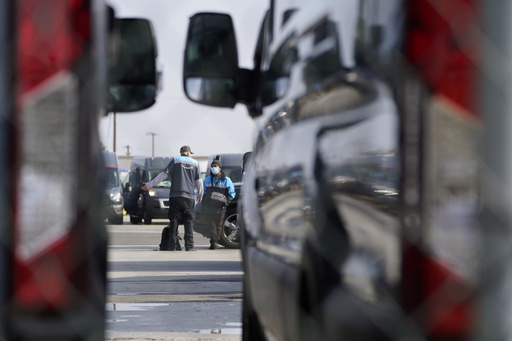Prosecutors at a federal labor agency have concluded that Amazon is considered a joint employer of subcontracted drivers who worked in California to deliver packages for the company, despite Amazon’s claims that these drivers are not their employees.
The ruling was made by a regional director for the National Labor Relations Board in Los Angeles following an investigation into unfair labor practice charges filed against Amazon by the Teamsters union.
The Teamsters, a well-known labor group representing UPS drivers, have been aiming to unionize Amazon drivers but have faced obstacles due to Amazon’s reliance on third-party businesses for delivery services instead of directly employing the drivers.
Currently, there are more than 275,000 drivers working for these businesses known as Delivery Service Partners (DSPs).
The Teamsters and other labor advocates have argued that Amazon exerts significant control over the drivers by dictating their routes, setting delivery expectations, and monitoring their performance, which should classify them as joint employers.
Last year, the Teamsters successfully unionized numerous drivers working for a DSP in Palmdale, California, leading to additional charges filed against Amazon for not negotiating a union contract with them.
The NLRB spokesperson stated that agency prosecutors have made “merit determinations” on three of the charges, including the finding that Amazon and Battle Tested Strategies were joint employers of the drivers at the firm.
Furthermore, prosecutors concluded that Amazon engaged in unfair practices by making threats and withholding pertinent information from the union, and failing to negotiate with the union regarding the effects of terminating the DSP’s contract.
Amazon’s spokesperson expressed disagreement with the Teamsters’ claims, stating that they expect the remaining allegations to also be dismissed if the agency chooses to pursue them further.
In contrast, Teamster General President Sean M. O’Brien welcomed the decision, believing it enforces Amazon’s obligation to negotiate with its drivers on their working conditions.
This website uses cookies so that we can provide you with the best user experience possible. Cookie information is stored in your browser and performs functions such as recognising you when you return to our website and helping our team to understand which sections of the website you find most interesting and useful.
